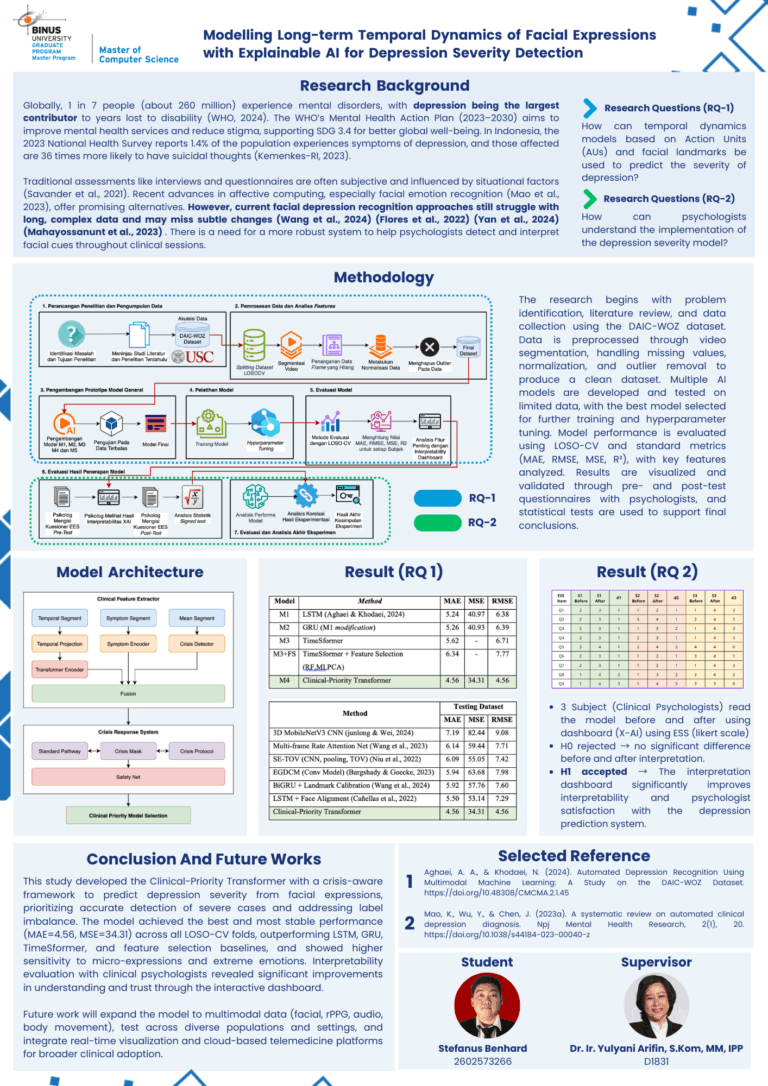Modeling Long-term Temporal Dynamics of Facial Expressions with Explainable Al for Depression Severity Detection
Depression remains one of the most common mental health issues around the world, with larger impact in the southeast asian region estimated 13.2% to have mental health disorder according to WHO in December 2024. In Indonesia, the increasing incident of depression is gaining attention, but still early detection methods still rely on subjective interviews tend likely to bias. Meanwhile, national screening efforts by Ministry of Health of the Republic of Indonesia (KEMENKES RI) urgently need faster early detection to capture depression symptoms especially in hardly especially in remote areas that are difficult to reach. This research aims to develop a depression severity prediction system based on facial expression analysis with clinical-priority Transformer architecture equipped with crisis-aware framework and dashboard interpretability technology. This approach features the integration of clinical priority with weight adjustment for severe depression cases and the utilization of data balancing techniques to overcome the unbalanced label distribution and reducting tendency of regression to the mean (RTM). The system was evaluated on the DAIC-WOZ dataset with the LOSO cross-validation as well as an interpretation dashboard involving clinical psychologists. The results showed that the proposed model was able to achieve MAE and RMSE of 4.56, surpassing previous state-of-the-art methods. In addition to better accuracy, the Explanation Satisfaction Scale (ESS) results also showed significant improvement by reject h0 using sign test in psychologists understanding and satisfaction with the model interpretation. This study contributes to the development of a more accurate, transparent and readily applicable depression screening tool in the clinical context



